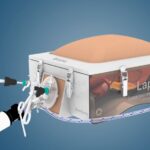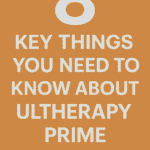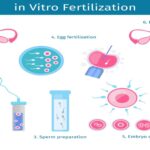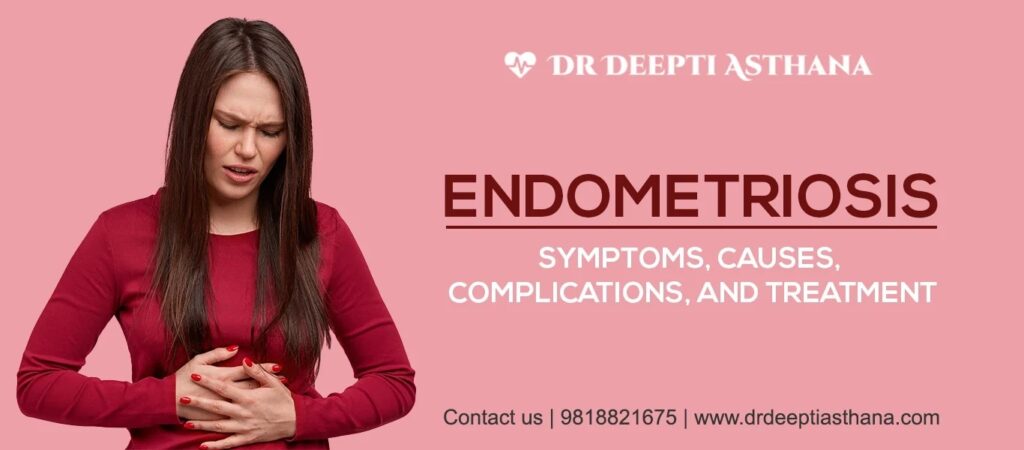By Dr. Deepti Asthana – Renowned Gynecologist in Gurgaon
Uterine fibroids—non-cancerous growths that develop in the muscular wall of the uterus—are incredibly common. While many women with fibroids experience no symptoms, others may deal with heavy periods, pelvic pain, pressure symptoms, and even fertility challenges. For years, surgery—especially hysterectomy—was considered the default solution. But today, there is growing interest in non-surgical fibroid treatment options.
As a gynecologist based in Gurgaon, I, Dr. Deepti Asthana, work with women every day who are seeking treatment for fibroids without surgery. In this article, we’ll explore the latest, safest, and most effective alternatives to hysterectomy, including natural remedies and medical therapies that can help shrink fibroids or manage symptoms effectively.
Understanding Fibroids and Their Symptoms
Uterine fibroids (also called leiomyomas or myomas) can vary in size, number, and location. Depending on these factors, they may cause:
- Heavy or prolonged menstrual bleeding
- Pelvic pain or pressure
- Frequent urination
- Constipation
- Lower back or leg pain
- Difficulty with fertility or pregnancy
Although fibroids are benign, they can significantly impact quality of life. Fortunately, many women do not require surgery. There are multiple fibroid medicine options and non-invasive therapies available today.
Why Consider Non-Surgical Fibroid Treatment?
Surgical options like myomectomy or hysterectomy, while effective, involve hospitalization, recovery time, and sometimes long-term consequences like infertility or hormonal changes. For women who want to retain their uterus, avoid anesthesia, or preserve fertility, non-surgical treatments are ideal.
Let’s explore the best alternatives to hysterectomy for fibroid management.
1. Medications for Fibroid Management
Modern medicine offers various fibroid medicine options that can control symptoms or even shrink fibroids.
a) GnRH Agonists (Gonadotropin-Releasing Hormone)
These drugs suppress estrogen and progesterone, hormones that fibroids depend on to grow. As a result, they shrink temporarily.
- Examples: Leuprolide acetate (Lupron)
- Often used before surgery to shrink fibroids
- Side effects: Hot flashes, bone thinning, mood swings
Note: These are not long-term solutions but are helpful in specific situations like preoperative care or temporary symptom control.
b) Hormonal Birth Control
Pills, patches, vaginal rings, and hormonal IUDs help reduce heavy menstrual bleeding and cramping, although they don’t shrink fibroids.
- Suitable for women with mild-to-moderate symptoms
- Ideal for those who do not desire immediate pregnancy
c) Tranexamic Acid
This non-hormonal medication helps reduce heavy bleeding during periods by promoting blood clotting. It doesn’t shrink fibroids but offers symptom relief.
d) Selective Progesterone Receptor Modulators (SPRMs)
Drugs like ulipristal acetate have shown promising results in shrinking fibroids and controlling bleeding.
2. Uterine Artery Embolization (UAE)
Uterine Artery Embolization is one of the most successful non-surgical fibroid treatments. It involves blocking the blood supply to fibroids using tiny particles, causing them to shrink over time.
- Minimally invasive (performed via a small catheter)
- Requires only 1–2 days of hospitalization
- Symptoms improve in 80–90% of women
- Recovery time is much shorter than surgery
UAE is often considered one of the best alternatives to hysterectomy for women not planning pregnancy.
3. MRI-Guided Focused Ultrasound Surgery (FUS)
This cutting-edge, FDA-approved procedure uses high-frequency ultrasound waves to destroy fibroid tissue.
- Performed under MRI guidance
- Non-invasive and outpatient
- No cuts, no stitches
- Recovery within a day or two
FUS is suitable for women with fewer and smaller fibroids and is gaining popularity as a highly advanced treatment for fibroids without surgery.
4. Endometrial Ablation
This procedure removes the lining of the uterus (endometrium) to reduce or stop bleeding. While it doesn’t treat fibroids directly, it can help manage heavy menstrual bleeding—especially when fibroids are small or within the uterine lining.
- Performed as a day-care procedure
- Not suitable for women planning pregnancy
5. Natural Fibroid Treatment Options
While evidence is still limited, some women explore natural fibroid treatment methods. These may not eliminate fibroids but could help manage mild symptoms and promote general hormonal balance.
a) Dietary Changes
- Increasing intake of green vegetables, fruits, and fiber
- Reducing red meat, processed foods, and alcohol
- Limiting caffeine and sugar
b) Herbal Remedies
Some traditional herbs like chasteberry (Vitex), green tea extract, and turmeric are believed to balance hormones and reduce inflammation. Always consult your gynecologist before starting herbal treatments to avoid drug interactions.
c) Exercise and Weight Management
Regular physical activity and maintaining a healthy BMI can help reduce estrogen levels, which in turn may limit fibroid growth.
d) Stress Reduction
High stress can disrupt hormone levels. Practices like yoga, meditation, and deep breathing may support hormone balance.
Important: Natural treatments are not a substitute for medical evaluation. They may complement clinical therapies in mild cases or help manage symptoms.
6. Lifestyle Modifications for Fibroid Management
Besides medications and procedures, making key changes in your lifestyle can enhance treatment outcomes:
- Balanced Diet: Rich in antioxidants and low in processed food
- Regular Exercise: Improves circulation and hormone metabolism
- Hydration: Essential for detoxification and hormonal balance
- Avoid Endocrine Disruptors: Limit exposure to plastics, synthetic fragrances, and certain cosmetics
These changes can support both natural fibroid treatment and medical interventions.
Comparing Non-Surgical Options at a Glance
|
Treatment |
Goal |
Suitable For |
Preserves Fertility? |
Invasive? |
|
Hormonal Therapy |
Control symptoms |
Mild-to-moderate cases |
Yes |
No |
|
UAE |
Shrink fibroids |
Moderate-to-large fibroids |
Maybe |
Minimally |
|
FUS |
Destroy fibroid tissue |
Small, few fibroids |
Yes |
No |
|
Endometrial Ablation |
Reduce bleeding |
Small fibroids, heavy bleeding |
No |
Minimally |
|
Natural Remedies |
Symptom control, hormonal balance |
Mild symptoms |
Yes |
No |
Who Can Benefit Most from Non-Surgical Treatment?
Non-surgical options are ideal for:
- Women who wish to avoid hysterectomy
- Those seeking fertility preservation
- Women with mild to moderate symptoms
- Women with health conditions that increase surgical risk
- Anyone looking for shorter recovery and less downtime
When to Consider Surgical Alternatives
Despite many advances in non-surgical treatments, some situations still require surgery:
- Extremely large or numerous fibroids
- Severe anemia due to excessive bleeding
- Failed response to medical therapy
- Suspicion of malignancy or cancer risk
- Advanced age with no pregnancy plans and persistent symptoms
In such cases, procedures like myomectomy or hysterectomy may be the best path forward. But for many women, surgery is no longer the only or best option.
My Recommendation as a Gynecologist in Gurgaon
Every patient is unique. When it comes to fibroid treatment, one size does not fit all. As a gynecologist, I prioritize uterus-sparing, non-invasive options whenever possible. I recommend a thorough evaluation that includes:
- Detailed ultrasound or MRI
- Blood tests to check hormone levels and anemia
- Medical history and symptom analysis
Only then can we tailor a treatment plan that aligns with your health goals, fertility plans, and lifestyle preferences.
Final Thoughts
Gone are the days when hysterectomy was the only solution to fibroids. With today’s advanced options in non-surgical fibroid treatment, women can find effective, uterus-sparing solutions with minimal downtime and fewer risks.
Whether you’re looking for the best alternatives to hysterectomy, exploring fibroid medicine options, or curious about natural fibroid treatment, remember—your choices are many, and your journey to better health starts with the right guidance.
Dr. Deepti Asthana
Consultant Obstetrician & Gynecologist – Gurgaon
Expert in minimally invasive gynecology, fibroid care, and women’s wellness
Let’s find the safest, most effective fibroid treatment for your unique needs—without surgery.
- Best Non-Surgical Fibroid Treatments | Dr. Deepti Asthana - Gynecologist in Gurgaon
- Explore the safest and most effective non-surgical fibroid treatments, including medicines, UAE, FUS & natural remedies. Expert advice by Dr. Deepti Asthana, Gurgaon.
- hysterectomy | fibroid medicine options
Related posts:
 How to Lose Weight Fast Naturally and Permanently ?
How to Lose Weight Fast Naturally and Permanently ?
 How Laparoscopic Simulators Improve Precision & Reduce Surgical Errors
How Laparoscopic Simulators Improve Precision & Reduce Surgical Errors
 Personalized Healing at Your Doorstep: Home Nursing Services in Faridabad
Personalized Healing at Your Doorstep: Home Nursing Services in Faridabad
 Solutions for Intractable Pain Unresponsive to Conventional Therapies
Solutions for Intractable Pain Unresponsive to Conventional Therapies
 How Much Does Mole Removal Cost in Islamabad?Mole Removal Islamabad
How Much Does Mole Removal Cost in Islamabad?Mole Removal Islamabad
 Eight Key Things You Need to Know About Ultherapy Prime Today
Eight Key Things You Need to Know About Ultherapy Prime Today
 What You Should Know About Taking 125mcg Vitamin D3 Daily includes its potential to support immune function
What You Should Know About Taking 125mcg Vitamin D3 Daily includes its potential to support immune function
 Comprehensive Guide to IVF Treatment in Delhi at Sunrise Hospital
Comprehensive Guide to IVF Treatment in Delhi at Sunrise Hospital






